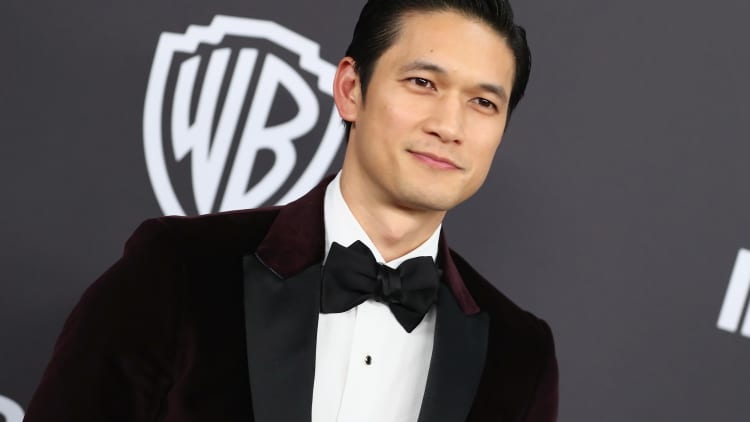Audiences may know him for his dramatic work as forensic psychiatrist Dr. George Huang on 15 seasons of "Law & Order: Special Victims Unit;" as the cyber-terrorist Whiterose, a transgender woman who also presents as a man as China's Minister of State Security, in "Mr. Robot;" or the villainous Hugo Strange in the superhero crime drama "Gotham."
Most recently, however, viewers can catch BD Wong flexing his comedic muscles as Wally, the hard-working dad with a heart of gold in Comedy Central's "Awkwafina is Nora From Queens."
The half-hour scripted comedy is a fictionalized portrayal of Awkwafina's (whose real name is Nora Lum) life being raised by her grandmother and father in Flushing, Queens. The 10-episode series was recently renewed for a second season and follows the 27-year-old slacker on her quest to figure out what she wants to do in life. This includes taking up odd jobs as a ride-share driver, on-camera adult performer, and an office assistant who ends up addicted to Adderall, to name a few.
Wong, for his part, wasn't taking up that same level of side gigs in his 20s. He tells CNBC Make It his first non-acting job was at a Mrs. Fields Cookies counter and recalls other side jobs like collecting tickets and managing house at an off-Broadway theater in New York City.
But before his acting career took off in his late 20s, Wong relates to the "Nora From Queens" narrative of having the support of his family to launch his life beyond the home — namely in the form of a $500 loan from his parents.
In a 1991 interview with Ed Wilson of CUNY TV, Wong recalls how he landed his Broadway debut and first major leading role when he was 27. At the time, Wong was living in Los Angeles, when his agent came to him with a role for a new play in New York City. After reading just part of the script, Wong knew he had to audition.
"It was a new and fresh way to say a lot of interesting ideas," Wong says in the Spotlight interview. "And it was the part of a lifetime."
However, because Wong was an up-and-coming actor, producers weren't willing to fly him out to audition. Wong would have to buy his own airfare — but he didn't have the money.
He tells Wilson: "I called my parents and said, 'I don't have money to go to an audition that I have no idea what will happen. I just need to have this opportunity. It's a very important one.' And they were extremely supportive and said, 'Well, you must borrow the money from us,' and they lent me the money to go to New York."
Wong ended up being cast as as Song Liling, the lead in "M. Butterfly," a play by David Henry Hwang that follows the relationship between a French diplomat and a Chinese opera singer. In 1988, "M. Butterfly" won a Tony award for best play, and Wong took home a trophy for the category of best actor.
He's since taken his acting beyond the stage to TV, film and even video-game voiceovers. His latest work in "Nora From Queens" highlights the everyday interactions of a multi-generational Asian-American family, which is something Wong says he wasn't sure would ever happen in his career.
He tells CNBC Make It: "You start to wonder, 'Am I ever going to see a family being a family and fighting, or the kids just being angsty, but it doesn't have anything to do with their Asian American-ness — it's just them being people? Will I ever see that?' And now we're here seeing it, and we're a part of it."
The last time Wong was in a similar role was as Margaret Cho's brother on "All-American Girl." The 1994 show was the first prime time sitcom to feature an Asian-American family, but it received criticism for its portrayal of stereotypical characters and was cancelled after one season.
Progress around Asian American portrayals in media has been slow since then. Just 1.4% of lead characters in films released in 2014 were Asian, despite making up 5.4% of the U.S. population, according to a report from the Annenberg School for Communication and Journalism at the University of Southern California. But there have been numerous major achievements in recent years, including Awkwafina's own rising star power and her historic Golden Globes win for best actress in a musical or comedy in 2019's "The Farewell."
This kind of environment, Wong says, is what's needed to keep the momentum going to empower Asian-American creatives to become more visible in front of and behind the camera.
"Now it's a time when Nora can run free and experiment and have hiring power and artistic power," he says. "Both of those things create a context which is different than content of the past. It's more of an expression of who she is and, as an extension, who we are as Asian Americans."
Like this story? Subscribe to CNBC Make It on YouTube!



